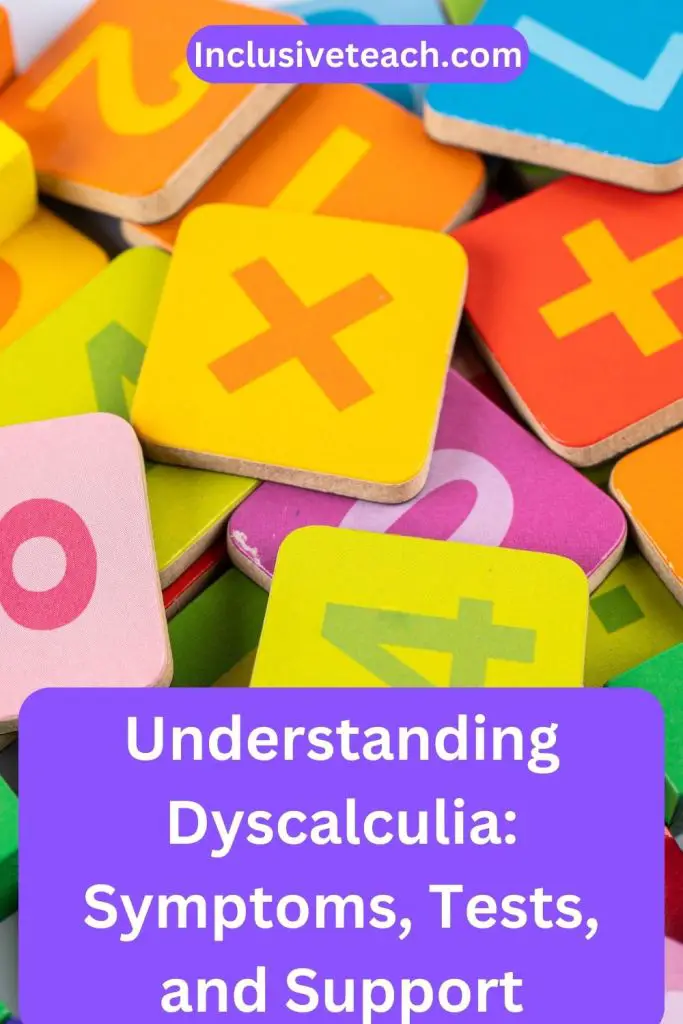Understanding Dyscalculia: Symptoms, Tests, and Support
What is Dyscalculia?
Dyscalculia is a learning disability that affects an individual’s ability to understand and work with numbers. Also referred to as acalculia, arithmetic disability, or number agnosia, dyscalculia manifests in various forms, including developmental, secondary, and acquired.
Developmental Dyscalculia: Developmental dyscalculia arises from early childhood, leading to challenges in comprehending numerical concepts. Those affected may struggle with number order, counting objects, and grasping the significance of numbers.
Secondary Dyscalculia: Secondary dyscalculia occurs post-literacy acquisition due to factors such as head injuries, strokes, or neurodegenerative diseases. Individuals who previously demonstrated numerical proficiency may suddenly face difficulties.
Acquired Dyscalculia: Acquired dyscalculia involves the loss of numerical comprehension in individuals previously proficient with numbers. This condition can result from trauma, brain tumours, substance abuse, or dementia associated with Alzheimer’s disease.
Causes of Dyscalculia: Research indicates that dyscalculics struggle with the abstract nature of numbers. Unlike neurotypical individuals who intuitively grasp numerical relationships, dyscalculics perceive numbers differently, often failing to recognize fundamental connections.

Recognising Dyscalculia
Identifying dyscalculia often involves recognising its symptoms through behavioural cues. Individuals with dyscalculia may exhibit difficulties in counting, comprehending numbers as wholes rather than individual digits, grasping mathematical concepts, understanding time, and spatial relationships, and interpreting graphs or charts.
Taking a Dyscalculia Test
Dyscalculia tests are crucial for accurate diagnosis and intervention. These assessments typically involve mental math problems or tasks to evaluate mathematical understanding. Anyone experiencing challenges with numbers should consider taking a dyscalculia test, including students, adults managing finances, or seniors planning retirement.
Test Preparation and Duration
Preparing for a dyscalculia test involves familiarity with mathematical concepts. While there’s no specific preparation, completing math classes and seeking assistance from friends or relatives can aid in test readiness. Test durations vary, typically lasting from 15 minutes to an hour, with the flexibility for additional time if needed.
Test Administration
Tests may be administered online, in educational settings, or through medical professionals. Online tests may incur a fee, while in-person assessments are often complimentary.
Free Online Dyscalculia Test: This test will give you a good indication if you have Dyscalculia. It is free and simple to complete. Please note there is a difference between having dyscalculia and just not understanding and being able to apply mathematical concepts.
Frequently Asked Questions
1. Can dyscalculia be self-diagnosed?
No, it requires professional diagnosis through specialized tests. Self-diagnosis is insufficient for accurate assessment.
2. Is dyscalculia linked to ADHD?
The co-occurrence of dyscalculia and ADHD is a notable phenomenon that warrants attention and understanding. Research indicates that while these two conditions are distinct, they often manifest together in individuals. In fact, it has been observed that up to 50% of children diagnosed with ADHD may also exhibit symptoms. This correlation can be attributed to shared attentional and cognitive factors that are present in both conditions. Understanding this overlap is crucial for developing effective strategies to support individuals who experience the challenges posed by both conditions.
3. Is dyscalculia a reading disorder?
Dyscalculia primarily affects mathematical skills rather than reading abilities. However, individuals with dyscalculia may struggle with word problems and mathematical language.
4. Does dyscalculia run in families?
Research suggests a familial predisposition to this, indicating a genetic component in its aetiology.
Conclusively, dyscalculia poses significant challenges in numerical comprehension but can be effectively managed with appropriate diagnosis and intervention strategies.






